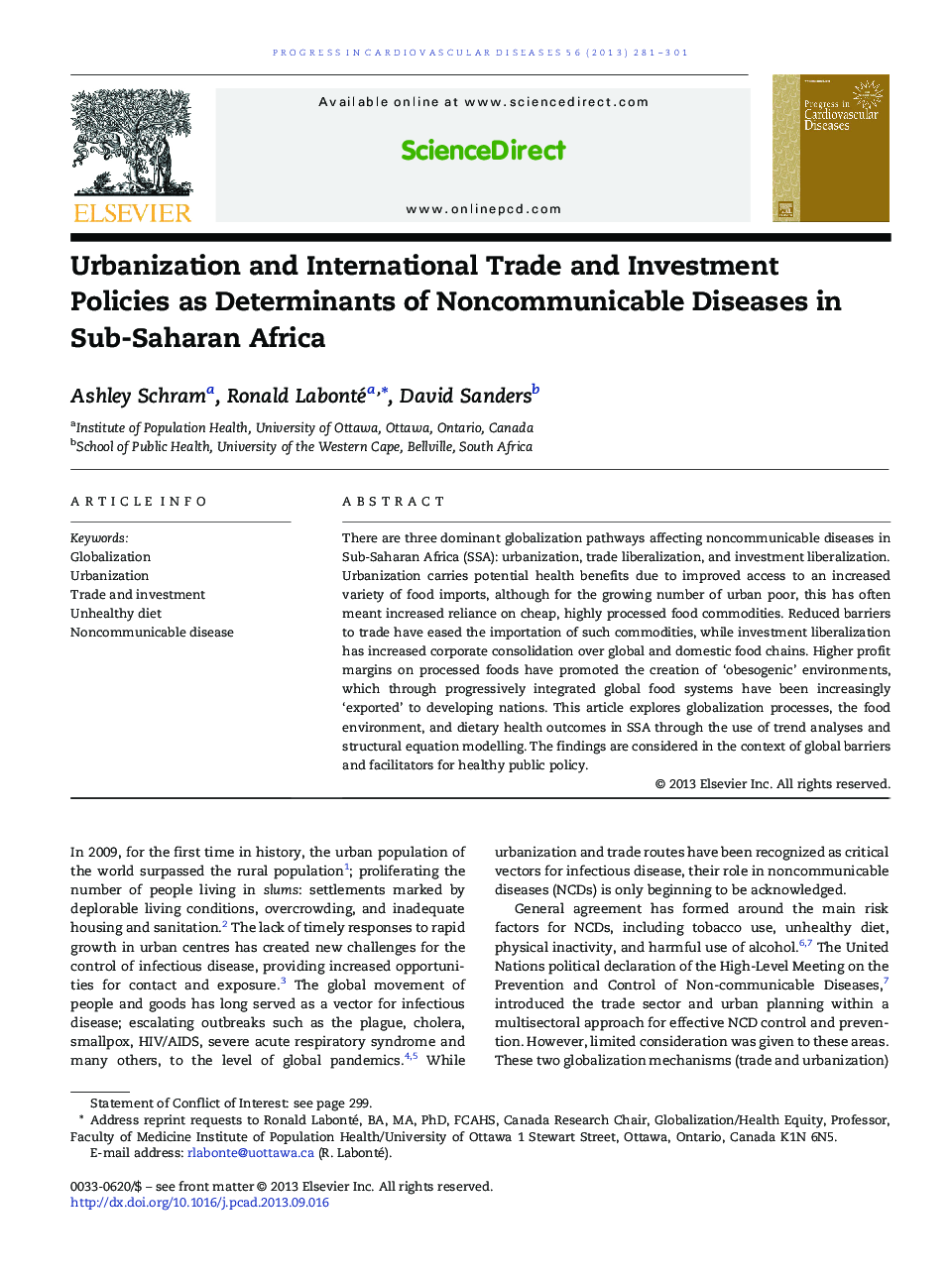| Article ID | Journal | Published Year | Pages | File Type |
|---|---|---|---|---|
| 3006653 | Progress in Cardiovascular Diseases | 2013 | 21 Pages |
There are three dominant globalization pathways affecting noncommunicable diseases in Sub-Saharan Africa (SSA): urbanization, trade liberalization, and investment liberalization. Urbanization carries potential health benefits due to improved access to an increased variety of food imports, although for the growing number of urban poor, this has often meant increased reliance on cheap, highly processed food commodities. Reduced barriers to trade have eased the importation of such commodities, while investment liberalization has increased corporate consolidation over global and domestic food chains. Higher profit margins on processed foods have promoted the creation of ‘obesogenic’ environments, which through progressively integrated global food systems have been increasingly ‘exported’ to developing nations. This article explores globalization processes, the food environment, and dietary health outcomes in SSA through the use of trend analyses and structural equation modelling. The findings are considered in the context of global barriers and facilitators for healthy public policy.
